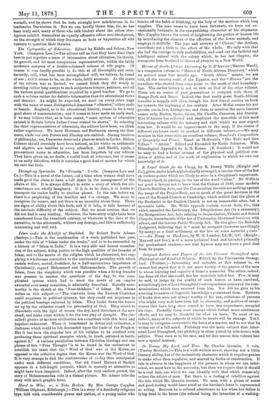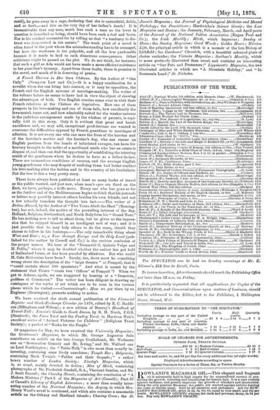So Young, My Lord, and True. By Charles Quentin. 3
vols. (Tinsley Brothers.)—This is a well-written novel, showing not a little literary ability, but of the melancholy character which it requires genius to make other than repulsive, and marred by faults of construction. If fate is adverse to the happiness of the persons in whom we are inter- ested, we must bow to the necessity, but then we require that it should be a real fate, one which we can identify with that which commonly orders the affairs of men. But there is a feeling of rebellion against the fate which Mr. Quentin invents. No man with a gleam of sense and good-feeling would have acted as the heroine's lover is represented as acting. Because he is refused admittance to her when her father is lying dead in the house (the refusal being the invention of a waiting- maid), he goes away in a rage, declaring that she is untruthful, fickle, and so forth,—and this on the very day of her father's death! It is ineonceivable that any man, much less such a man as the lover in question is described as being, should have been such a fool and brute. Nor is his conduct accounted for by telling us that "a tendency to dis- trust was deep-rooted in his nature." The weak point of a novel is often found in the part where the misunderstanding has to be arranged, but here the weakness is too palpable, and all the less pardonable because it is made to lead to such disastrous consequences. Other criticisms might be passed on the plot. We do not think, for instance, that such a girl as Ada would not have made a more efficient resistance to her guardian's tyranny. Apart from these faults, there is promise in the novel, and much of it is deserving of praise.







































 Previous page
Previous page